|
Date
|
Speaker
|
Topic
|
Faculty Host
|
11/14/2014
10:30-12:00
|
Puneet Manchanda
Michigan
|
|
|
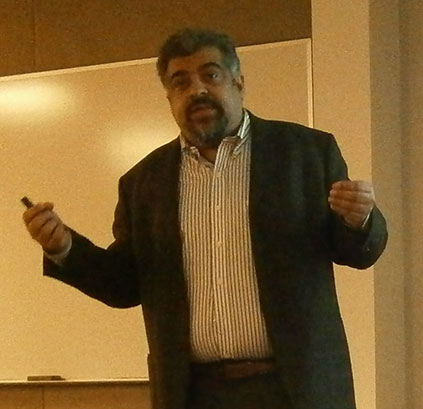
|
11/7/2014
10:30-12:00
|
Qiaowei Shen
Wharton
|
"Upselling vs. Upsetting Customers"
-
Click to read Abstract
Upselling is a common practice in business that is associated with high profit margin. Yet we find empirical evidence that upselling is negatively correlated with customer satisfaction. In this paper, we study the relationship between upselling and customer satisfaction in the framework of sales agents incentive. On the one hand, sales representatives are motivated to upsell by the monetary incentive in the form of commission. On the other hand, sales representatives have the intrinsic motivation to achieve customer satisfaction, which is not tied to monetary reward. As exerting effort is costly, an agent optimally allocates effort in the upselling practice and in serving customers to maximize personal utility. Using a comprehensive data set from a national car rental company that practices upselling, we estimate a model of customers'' decision to purchase add-on products at the counter and customer satisfaction together with counter representatives' effort allocation decision. We conduct counterfactual analysis to evaluate the implications of different incentive schemes on upselling, customer satisfaction and future business.
|
|
10/31/2014
10:30-12:00
|
Leonard Lee
NUS
|
"Price Promotions and Their Negative Effects"
-
Click to read Abstract
The impact of price promotions has attracted substantial interest among scholars who seek to understand how people make everyday purchase decisions. While past research has shown that price promotions often translate into real economic savings, guide buying decisions, encourage trial of new products, and make consumers feel smart and good about themselves, other work has shown that price promotions can reduce perceived product efficacy, lower price expectations, increase price sensitivity, and negatively impact brand sales and consumer loyalty in the long run. In this session, I discuss a number of recent findings that highlight additional downsides of price promotions and their respective psychological mechanisms. Specifically, price promotions may decrease consumption enjoyment particularly when people consume the products that they have purchased at a discount after a delay (vs. immediately) following the transaction, increase consumer impatience, and reduce people's willingness-to-buy by momentarily increasing their subjective importance of the prudent-spending goal.
|
|
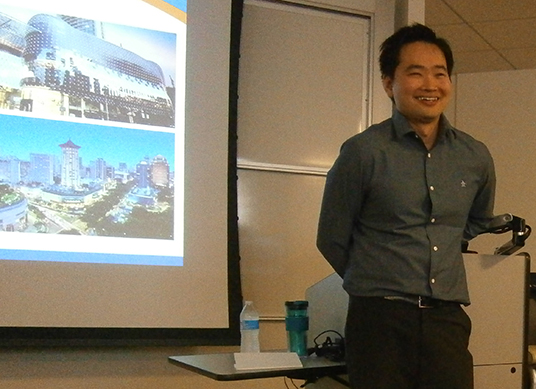
|
10/10/2014
12-1:30 p.m.
|
Cassie Mogilner
Wharton
|
"It's Time for Happiness"
-
Click to read Abstract
How should people spend their time to enjoy greater happiness? Cassie Mogilner will be presenting two projects that address this question. The first examines the happiness enjoyed from ordinary and extraordinary experiences, revealing age to play a critical role. The second examines the happiness enjoyed from spending time on highly varied (vs. similar) activities, revealing the interval of time within which the activities occur to play a critical role. Together these findings provide insight into happy ways to spend time and highlight time as a key ingredient for experiencing happiness.
|
|
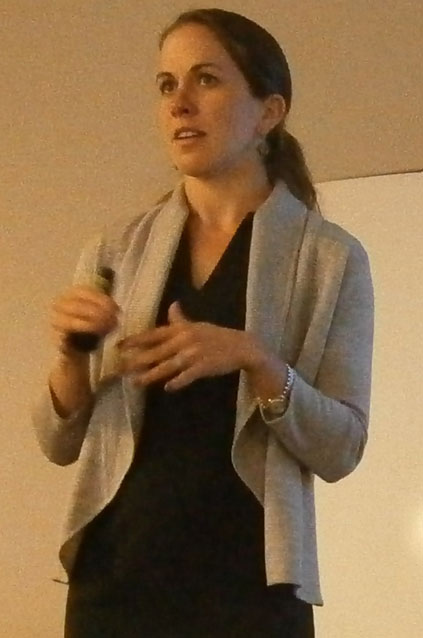
|
10/3/2014
10:30-12:00
|
Jean-Pierre Dubé
Chicago
|
"Self-Signaling and Pro-Social Behavior: a cause marketing mobile field experiment"
-
Click to read Abstract
We test self-signaling theory using two large-scale, randomized controlled field experiments. Mobile phone users are randomly sampled to receive promotional offers for movie tickets via SMS technology. Test groups are exposed to different pre-determined levels of price discounts and charitable donations tied to the ticket purchase. The main effects of price discounts and charitable donations increase ticket demand. However, the combination of both discounts and donations can decrease ticket demand. In a post-purchase survey, the same subjects self-report lower ratings of “feeling good about themselves” as the motivation for buying a ticket when discounts and donations are both large. These findings are consistent with a self-signaling theory, whereby the discount crowds out the consumer''''s “warm-glow” feeling from the charitable donation. Alternative behavioral explanations are ruled out. A structural model of demand with self-signaling is fit to the data using a constrained optimization algorithm to handle the potential multiplicity of equilibria. The estimated preferences reveal that consumers do not derive consumption utility from donations bundled with the ticket. However, they derive significant diagnostic utility: the warm-glow feeling of the self-perception of valuing charitable donations.
|
|
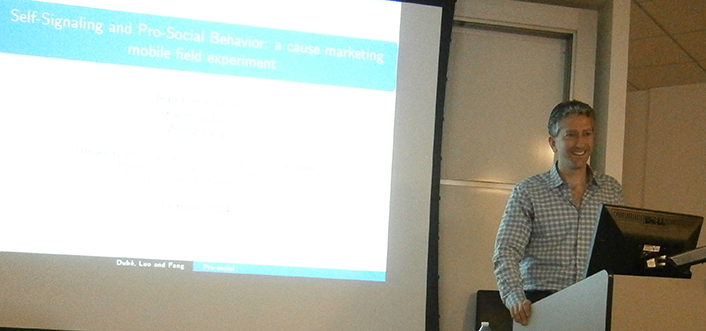
|
9/26/2014
10:30-12:00
|
Barbara Bickart
Boston
|
"Sharing Secrets with Strangers on Social Media: Can You Make Word-of-Mouth More Persuasive via Intimate Self-Disclosure?"
-
Click to read Abstract
Disclosure of intimate personal stories and self-relevant emotions is an essential part of many social media conversations. Yet, despite the frequent occurrence of such intimate self-disclosure on social media, its influence on the persuasive impact of a communicator is surprisingly limited. This research examines the influence of sharing a secret (i.e., the disclosure of personal information involving risk and vulnerability) on an influencer's ability to persuade others. Overall, we find that the effectiveness of sharing secrets as a persuasive tactic depends on the influencer's relationship (i.e., communal versus exchange) with the audience and the intimacy of the secret being shared. We test these predictions in the context of a health and fitness blog (Study 1 to 3) and replicate in a technology blog setting (Study 4). Specifically, in Study 1 we show that when influencers have a communal relationship with their audience, purchase intentions and willingness to pay for a recommended fitness book increase relative to a low disclosure control condition, while when the influencer has an exchange relationship with the audience, the opposite pattern is observed. These effects are mediated by trust in the communal condition and by the perceived violation of relationship norms in the exchange condition. In Study 2, we replicate the communal condition results from Study 1 and further show that when a secret is perceived as being too intimate, sharing backfires even in a communal relationship. In Study 3, we show that sharing a secret can be an effective persuasive tactic in an exchange relationship as long as the audience solicits the sharing. In this case, violation of relationship norms is no longer the mediating variable, but instead, the increased persuasion is mediated by a norm of reciprocity. Finally, Study 4 replicates the findings in a technology blog context. Results from these four studies extend our knowledge of the relationship between self-disclosure and persuasion and provide practical guidelines for when an influencer's communication will be helped or hurt by the use of these tactics.
|
|
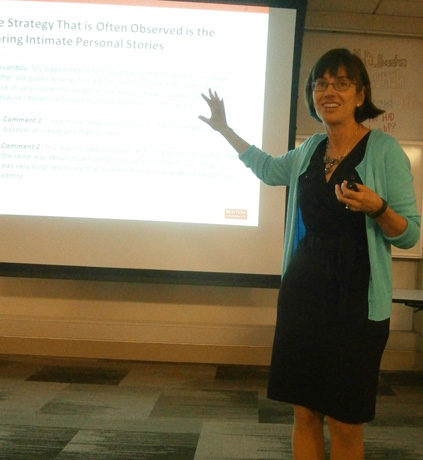
|
9/12/2014
10:30-12:00
|
Gerry Tellis
USC
|
"Crowdsourcing Innovations"
-
Click to read Abstract
Due to the growth of Web 2.0, crowdsourcing ideas for innovation has now become important for ideation. The success of crowdsourcing depends on the number and quality of ideas generated by ideators (participants) in the contest. With few exceptions (e.g., Bayus 2013 and Girotra, Terwiesch, and Ulrich 2010), research is sparse as to what characteristics of ideators lead to good quality ideas. We test for four such characteristics, prior success, time in contest, social learning, and productivity. Our theory come from experimental studies while our data come from 9 crowdsourcing competitions conducted for large corporations in real markets.
We find that social learning has a significant positive influence on success. However, the measure of social learning that best associates with success is betweenness centrality not network centrality. Contrary to Terwiesch and Ulrich (2010), productivity per day is negatively related to success. After controlling for other variables, time has a negative effect on success. This means merely sitting in the contest and not participating in order to take and not give hurts success. Most importantly, contrary to Bayus (2013), prior success is positively related to current success This result suggests that talent rather than fixation is an important driver of ideator’s success. We discuss theoretical and managerial implications.
|
|
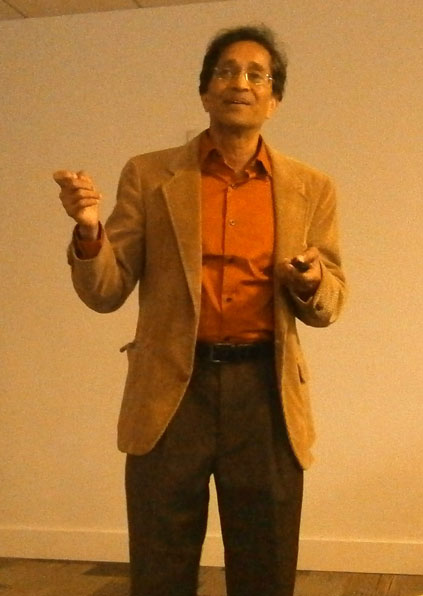
|
4/12/2014
UH Hilton
All Day
|
|
The 32nd UH Marketing Doctoral Symposium
|
|
4/11/2014
UH Hilton
5:00-7:00 pm
|
|
The 32nd UH Marketing Doctoral Symposium. Keynote Speaker:
Gary Frazier
|
|
4/7/2014
10:30-12:00
|
Sam K. Hui
NYU
|
"Analyzing Moment-to-Moment Data Using a Bayesian Functional Linear Model: Application to TV Show Pilot Testing"
-
Click to read Abstract
Researchers often collect continuous consumer feedback ("moment-to-moment," or MTM, data) to understand how consumers respond during a variety of experiences (ranging from viewing a TV show to undergoing a colonoscopy). Analyzing how MTM judgments are integrated into overall evaluations allows researchers to determine how the structure of an experience influences consumers’ post-experience satisfaction. However, this analysis is challenging because of the functional nature of MTM data. As such, previous research has typically been limited to identifying the influence of heuristics, such as relying on average intensity, peak, and ending.
We develop a Bayesian functional linear model to study how the different "moments" in the MTM data contribute to the overall judgment. Our approach incorporates a (temporally) weighted average of MTM data as well as specific “patterns” such as peak and trough, thus nesting previous approaches such as the “peak-end” rule as special cases. We apply our methodology to analyze data on TV show pilots collected by CBS. Our results reveal several interesting empirical findings. First, the last quintile of a TV show is weighted around four times as much as each of the first four quintiles. Second, patterns such as peak and trough do not play substantial roles in driving overall evaluations for TV shows. Finally, the last quintile is even more important for procedural dramas than for serial dramas. We discuss the managerial implications of our results and other potential applications of our general methodology.
|
|
3/21/2014
10:30-12:00
|
Timothy Gilbride
Notre Dame
|
"What to Click, When to Stop, and What to Buy: A Model of Information Processing and Choice at an E-commerce Website"
|
|
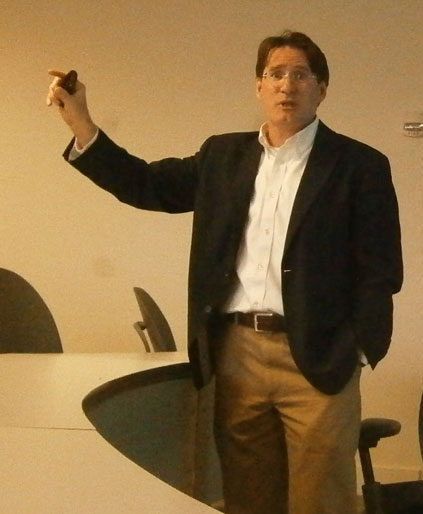
|
2/28/2014
10:30-12:00
|
Ganesh Iyer
UC Berkeley
|
"Competing for Attention in Social Communication Markets"
|
|
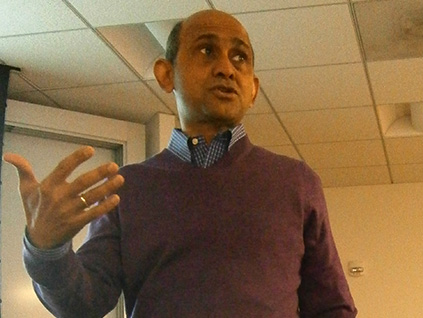
|
2/14/2014
10:30-12:00
|
Avi Goldfarb
Toronto
|
"Crowdfunding: Social Frictions in the Flat World?"
|
|
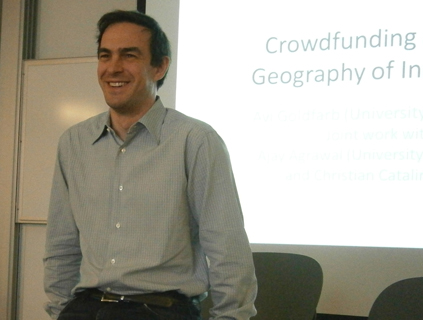
|
2/7/2014
10:30-12:00
|
Juliano Laran
Miami
|
"Rise to the Challenge: Effort Interpretation Influences Motivation to Perform a Behavior"
-
Click to read Abstract
This presentation investigates motivation to perform a behavior as a function of the perceived effort to perform it. We propose two routes through which effort influences motivation. One route is the difficulty route. When effort is interpreted in terms of how difficult a behavior is to perform, higher effort will decrease people's motivation to perform the behavior. A second route is the challenge route. When effort is interpreted in terms of how challenging a behavior is to perform, higher effort will increase people’s motivation to perform the behavior. We demonstrate the effect of interpreting behaviors as difficult vs. challenging in the contexts of staying in shape, exposure to advertising, willingness to do volunteering work, and loyalty programs. We end with a discussion of implications for theories of effort and motivation and for the way marketers communicate the effort involved in consuming products and experiences.
|
|
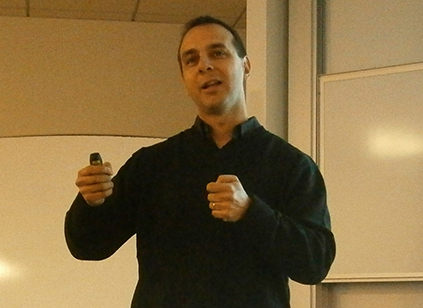
|